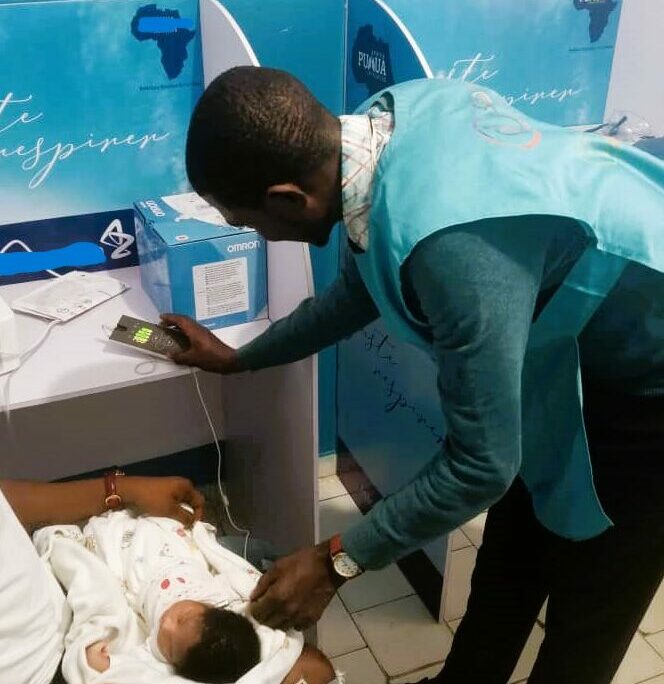By Dr. Vofo
Welcoming a new life into the world is a joyous occasion, filled with hopes and dreams for a healthy and happy future. In the early days of a baby’s life, two vital aspects demand special attention: hearing and vision. Early screening for these sensory functions is not just a routine check; it is a cornerstone for ensuring a child’s optimal development and well-being.
The Significance of Hearing and Vision in Early Development:
- Language Development:
- Hearing is fundamental to language acquisition. Babies start absorbing the sounds of their environment from birth, laying the foundation for future speech and language skills. Early detection of hearing issues allows for timely intervention, preventing potential delays in language development.
- Social and Emotional Well-Being:
- Vision is crucial for a baby’s social and emotional development. The ability to make eye contact, follow faces, and respond to visual stimuli are integral to building early bonds with caregivers. Identifying visual impairments early on ensures that necessary interventions can be initiated to support healthy emotional connections.
- Education:
- Both hearing and vision play key roles in a child’s ability to learn. Hearing impairment can affect a child’s ability to understand instructions and engage in classroom activities. Similarly, visual impairments can hinder a child’s ability to read, write, and comprehend information. Early screening helps address potential obstacles to effective learning.
The Importance of Early Screening:
- Critical Developmental Period:
- The first years of life are a critical period for the development of sensory functions. Early screening allows healthcare professionals to identify and address hearing and visual impairments during this sensitive developmental window.
- Preventing Long-Term Consequences:
- Undetected hearing or visual impairments can lead to long-term consequences, including academic difficulties, social challenges, and delayed overall development. Early screening enables prompt intervention, potentially mitigating these consequences.
- Parental Education and Support:
Early screening provides an opportunity to educate parents about the importance of sensory development and the potential alarming signs. Parental awareness is a powerful tool for fostering a supportive environment for the child’s development. At Shomea, we prioritize sensitization at every screening program.
Conclusion:
Early screening for hearing and vision in new-borns is not merely a medical procedure; it is a proactive investment in a child’s future. By identifying and addressing sensory issues at the earliest stages, we pave the way for a child to explore the world with confidence, communicate effectively, and thrive academically and socially. As parents, caregivers, and healthcare professionals, let us join hands in ensuring that every child receives the gift of optimal sensory health from the very start, setting the stage for a lifetime of possibilities.

